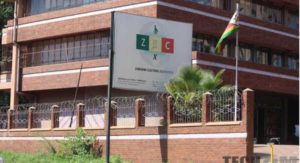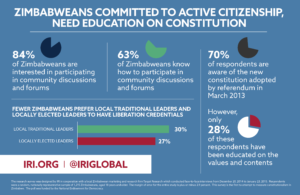 The European Union will oversee elections held in Zimbabwe this summer, the first time it has done so since 2002, CNBC reports:
The European Union will oversee elections held in Zimbabwe this summer, the first time it has done so since 2002, CNBC reports:
Zimbabwean President Emmerson Mnangagwa is attempting to build bridges with the West and win foreign investment to resurrect the country’s basket case economy. Holding free and fair elections have been high on Mnangagwa’s agenda since he took power in November 2017 after former long-term President Robert Mugabe was ousted.
 Over 4,7 million people have inspected the provisional voters’ roll as the program ended today, according to the Zimbabwe Electoral Commission (Zec). But civil society groups are warning that the elections could lack credibility.
Over 4,7 million people have inspected the provisional voters’ roll as the program ended today, according to the Zimbabwe Electoral Commission (Zec). But civil society groups are warning that the elections could lack credibility.
Heal Zimbabwe Trust (HZT), a civil society organization that monitored the biometric voter registration (BVR) exercise that commenced in early October 2017, received close to 6 000 complaints, reports suggest:
According to the trust, the “gross” BVR violations included the forced submission of voter slip serial numbers to political activists mainly from the ruling Zanu-PF and traditional leaders, assaults, threats of exclusion from food aid, forced attendance at political meetings and the unauthorised recording of voters’ information…… HZT, the Zimbabwe Election Support Network (Zesn) and political parties inundated ZEC [the election commission] with complaints, but the commission, it was established, mainly resorted to half-hearted dialogue with the victims and the perpetrators and avoided taking decisive action against the culprits.
 The International Republican Institute (IRI) and the National Democratic Institute (NDI) – core partners of the National Endowment for Democracy – are deploying a joint Zimbabwe International Election Observation Mission (ZIEOM) to observe the 2018 Zimbabwe elections:
The International Republican Institute (IRI) and the National Democratic Institute (NDI) – core partners of the National Endowment for Democracy – are deploying a joint Zimbabwe International Election Observation Mission (ZIEOM) to observe the 2018 Zimbabwe elections:
The ZIEOM has received accreditation to observe the Voter Roll Inspection Process (May 19-29, 2018). A high-level mission will visit Zimbabwe from June 2-9 to assess the country’s readiness for credible elections and offer suggestions for enhancing public confidence in the process. The ZIEOM plans to deploy observers throughout the country during the campaign period and on Election Day. The ZIEOM will coordinate with the other observer delegations, including domestic monitoring groups.







